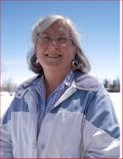Outside of the biologically assigned functions of copulation, child bearing and nurturing I don’t see that much INNATELY different between men and women. Most people would not agree with me on this. But I emphasize that I don’t believe there to be huge INHERENT differences. I believe most of the differences are superficial and acquired. Right from day one in our culture it is of the utmost importance to raise your child’s awareness of and flaunt his/her gender. Pink or blue, dolls or trucks, ribbons and bows or baseball cap, long hair or short, everyone knows the norm. Ways of highlighting, accentuating, detailing, and belaboring the differences between the sexes seems to be a preoccupation, if not an obsession, present in our culture.
This can be easily observed in the traditional roles men and women assign themselves as well. For example, women do the cooking and serving of food; that is until it’s time to cook on the grill outside. Then the man takes over. Is that because women are not supposed to get their hands dirty? I’ve never been able to figure that out. I know men who wouldn’t be caught dead cooking meat in the oven in the kitchen, yet pride themselves on grilling a piece of meat or an entire family dinner on the patio.
Men fix things, build things, do the driving. Most likely it is the man who does the outside work and possesses the tools. But in reality women can do these things too. Personally, I did not and do not fit well into the traditional roles for which men and women have volunteered. I have always been the one who possessed the tools even when I was married to Bill. I wonder. Is that because I have always been a lesbian; i.e. a deviant female—even when I didn’t know it? I don’t think so. I think it’s because I like tools and I like fixing things.
My father taught me to use an axe and to use it effectively. Even though I was a puny child I learned well how to split a large log. Fortunately, or maybe by design, I married a man who did not need to play the traditional male roles all the time in order to secure his feeling of manhood. Often I would find myself outside chopping wood for the fire while he was in the kitchen cooking. He actually loved to cook—once in a while. I give him credit too for doing the clean up as well. On the other hand I know some women who do not want and will not allow their husbands or anyone else in “their” kitchen. So perhaps domain has a lot to do with the roles people take on along with personal preference; not just intrinsic gender differences.
Sure, bearing and nurturing the children and caring for them naturally falls to the female. That means women are more likely to stay home while the men go off to work, to hunt, to cultivate the fields, to fight the wars, etc.
However, in these modern times it is not unheard of for the care-taking roles to be reversed. There are many women who actually prefer working outside of the home. This I suppose applies mostly to professional women on a career path. At the same time there are many men who love staying home and raising the children. As a mother, I stayed home when the children were babies. I considered myself fortunate to be able to do this, but at the same time I envied my husband who was developing his life-long career of choice. Although it was I who stayed home, I was not the ideal adult to take care of young children. As much as I love my children, I often felt trapped in those early days, unable to get out of my house and out into the adult world. I never felt that I was cut out to be a child care-taker.
Many women and many men are very good at caring for and educating young children and love to do it. Today men and women do this professionally while mothers and fathers spend their days working their careers. Career or no, today in most cases both parents are working out of necessity. In any case at day’s end working parents are eager and happy to see their little ones. Maybe this is a better way of raising children.
Another notable but superficial difference between men and women is the clothes they wear. Myself? I’ve always preferred men’s clothes to women’s. They are far more practical and far, far more comfortable. Whose idea was it to put 3 inch spike heels on women’s shoes? Probably someone related to the people who invented foot binding in China. Fortunately we women today are spared from wearing the corsets, bustles, petticoats and other such torture apparel of the past. The spike-heeled shoes are still prevalent however.
Men, on the other hand, have not totally escaped the inconvenient dictates of fashion. Spats, top hats, and stiff collars would never be appealing in the comfort department. For convenience, simplicity, and ease I’ve often thought going back to the toga might not be a bad idea. This would not go over well with the fashion industry which is thriving in our capitalist system. Now there are the Chinese. The Chinese dress comfortably and in a unisex fashion. But I don’t care to dress in a quilt, no thanks.
Men definitely have the edge when it comes to physical strength. And it’s a good thing. I am constantly looking for a man to open the cap on my water bottle. Women have better endurance and pain tolerance it seems. So even though we’re not the same in that department, we balance out.
I have a friend who transitioned from male to female in middle age. She tells me that when you are born male you get a pass that females don’t ever get. Now there’s food for thought and maybe a topic for later discussion. It seems to me, after considering this subject, that there ARE, in fact, some, but very few, INNATE differences between men and women. I would say most of the distinguishing characteristics are the ones people, cultures, and societies have created over the ages and are still constantly devising and fostering.
© 1 May 2017
About the Author
Betsy has been active in the GLBT community including PFLAG, the Denver Women’s Chorus, OLOC (Old Lesbians Organizing for Change), and the GLBT Community Center. She has been retired from the human services field for 20 years. Since her retirement, her major activities have included tennis, camping, traveling, teaching skiing as a volunteer instructor with the National Sports Center for the Disabled, reading, writing, and learning. Betsy came out as a lesbian after 25 years of marriage. She has a close relationship with her three children and four grandchildren. Betsy says her greatest and most meaningful enjoyment comes from sharing her life with her partner of 30 years, Gillian Edwards.



